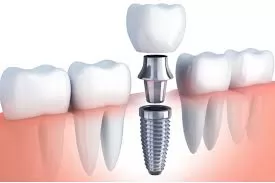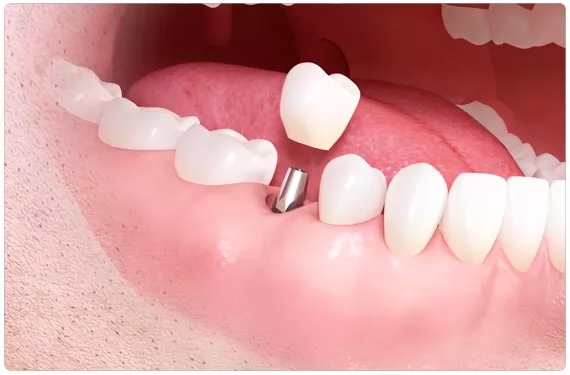What Are the Advantages of Dental Implants?
Implant Brands including: Alpha-Bio, Nobel and Straumann and Dental Crowns including: Zirconium, CEREC and E-max are available
There are many advantages to dental implants, including:
• Improved appearance. Dental implants look and feel like your own teeth. And because they are designed to fuse with bone, they become permanent.
• Improved speech. With poor-fitting dentures, the teeth can slip within the mouth causing you to mumble or slur your words. Dental implants allow you to speak without the worry that teeth might slip.
• Improved comfort. Because they become part of you, implants eliminate the discomfort of removable dentures.
• Easier eating. Sliding dentures can make chewing difficult. Dental implants function like your own teeth, allowing you to eat your favorite foods with confidence and without pain.
• Improved self-esteem. Dental implants can give you back your smile and help you feel better about yourself.
• Improved oral health. Dental implants don't require reducing other teeth, as a tooth-supported bridge does. Because nearby teeth are not altered to support the implant, more of your own teeth are left intact, improving long-term oral health. Individual implants also allow easier access between teeth, improving oral hygiene.
• Durability. Implants are very durable and will last many years. With good care, many implants last a lifetime.
• Convenience. Removable dentures are just that; removable. Dental implants eliminate the embarrassing inconvenience of removing dentures, as well as the need for messy adhesives to keep them in place.
How Successful Are Dental Implants?
Success rates of dental implants vary, depending on where in the jaw the implants are placed but, in general, dental implants have a success rate of up to 98%. With proper care (see below), implants can last a lifetime.
How Painful Are Dental Implants?
Most people who have received dental implants say that there is very little discomfort involved in the procedure. Local anesthesia can be used during the procedure, and most patients report that implants involve less pain than a tooth extraction.
Embed Asset Override
After the dental implant, mild soreness can be treated with over-the-counter pain medications, such as Tylenol or Motrin.
How Do I Care for Dental Implants?
Dental implants require the same care as real teeth, including brushing, flossing, rinsing with an antibacterial mouthwash, and regular dental check-ups.


